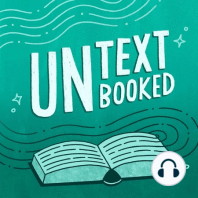3 min listen

Damnation to the governor and confusion to the colony.
Damnation to the governor and confusion to the colony.
ratings:
Length:
35 minutes
Released:
Nov 16, 2020
Format:
Podcast episode
Description
Pop culture misremembers the Golden Age of piracy, and usually portrays pirates as apolitical agents of chaos. But historians now believe that many pirates followed a democratic and egalitarian structure that put them directly at odds with the world’s biggest governments.
In the 1700’s, life as a European sailor left a lot to be desired. Wages were low, conditions were dangerous, and captains could be cruel. A lot of sailors wanted out.
Pirates, on the other hand, were recruiting disenchanted sailors from captured ships and escaped slaves, offering them better living conditions.
Life under the Jolly Roger was still rough though, and as such, pirate codes of conduct emerged, like the one issued by Captain Bartholomew Roberts, which stated that each pirate should receive equal shares of loot, that gambling shouldn’t take place on the ship, that pirates should receive compensation for injuries sustained in battle, that arguments should be settled by duels, but only on land, and more (see page 231).
“A merry life and a short one, shall be my motto,” said Captain Roberts. This sounds a lot like a more modern phrase: “I’m here for a good time, not a long time”, which wound up in music by Trooper, George Strait and Drake.
Historian Marcus Rediker thinks it’s no surprise that these ideals still persist. Despite the eventual decline of piracy in the Atlantic, Rediker believes that pirates may have won the longer war of influence; most of us can name pirates, but few remember the names of those who hanged them.
On this episode of UnTextbooked, producer Ming-Wei Cyprien Fasquelle interviews Marcus Rediker on what the pirates of the Atlantic can teach us about resisting corrupt authority.
Book: Villains of All Nations: Atlantic Pirates in The Golden Age
Guest: Marcus Rediker
Producer: Ming-Wei Cyprien Fasquelle
Music: Silas Bohen and Coleman Hamilton
Editors: Bethany Denton and Jeff Emtman
In the 1700’s, life as a European sailor left a lot to be desired. Wages were low, conditions were dangerous, and captains could be cruel. A lot of sailors wanted out.
Pirates, on the other hand, were recruiting disenchanted sailors from captured ships and escaped slaves, offering them better living conditions.
Life under the Jolly Roger was still rough though, and as such, pirate codes of conduct emerged, like the one issued by Captain Bartholomew Roberts, which stated that each pirate should receive equal shares of loot, that gambling shouldn’t take place on the ship, that pirates should receive compensation for injuries sustained in battle, that arguments should be settled by duels, but only on land, and more (see page 231).
“A merry life and a short one, shall be my motto,” said Captain Roberts. This sounds a lot like a more modern phrase: “I’m here for a good time, not a long time”, which wound up in music by Trooper, George Strait and Drake.
Historian Marcus Rediker thinks it’s no surprise that these ideals still persist. Despite the eventual decline of piracy in the Atlantic, Rediker believes that pirates may have won the longer war of influence; most of us can name pirates, but few remember the names of those who hanged them.
On this episode of UnTextbooked, producer Ming-Wei Cyprien Fasquelle interviews Marcus Rediker on what the pirates of the Atlantic can teach us about resisting corrupt authority.
Book: Villains of All Nations: Atlantic Pirates in The Golden Age
Guest: Marcus Rediker
Producer: Ming-Wei Cyprien Fasquelle
Music: Silas Bohen and Coleman Hamilton
Editors: Bethany Denton and Jeff Emtman
Released:
Nov 16, 2020
Format:
Podcast episode
Titles in the series (73)
Season 2 is coming soon! by UnTextbooked | A history podcast for the future